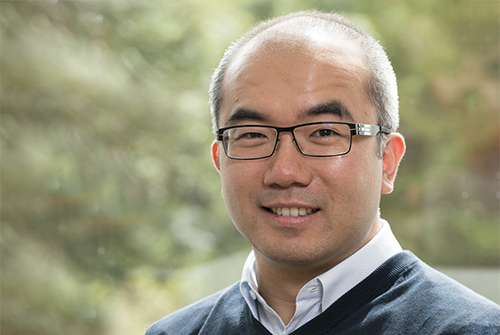Using AI to personalise treatments for pancreatic cancer
We're playing a key role in a new pan-European consortium, using artificial intelligence to improve treatments for pancreatic cancer.
Pancreatic cancer is often quickly fatal, and the incidence of the disease is rising. Patients with the disease face the lowest survival of all cancers in Europe (median survival time 4.6 months). Data suggests that pancreatic cancer will soon become the second leading cause of cancer-related death in Western societies.
Potential new treatments are emerging, but the main challenge is to select the right drug for an individual patient.
Pancreatic cancer treatment can be improved by an integrated, evidence-based approach.
At Glasgow we have a strong track record in precision medicine in pancreatic cancer. We played a leading role in Precision-Panc (a program of clinical trials using precision medicine for pancreatic cancer patients).
The University will be contributing multi-omics datasets, and also defining the clinical relevance and the modelling of the AI algorithm in the management of patients with pancreatic cancer.
We will also contribute to the consortium by generating research AI algorithms in genomics, transcriptomics and digital pathology.
PANCAIM will optimize and integrate genomics and imaging phenomics using artificial intelligence. Firstly, to help generate breakthrough knowledge to increase understanding of pancreatic cancer biology.
Secondly, to develop trusted, impactful AI applications for regular clinical use. The aim is to help clinical decision-makers to give the right treatment to the right patients at the right time, and to improve treatment outcomes, avoiding the current costly trial-and-error use of expensive drugs with strong side-effects.

Dr David Chang from our Institute of Cancer Sciences will lead the work for the University of Glasgow.
“Pancreatic cancer is a devastating disease, with one of the lowest survival rates in all cancer types, and urgent novel treatment strategies are needed. Over the years, we have and are continuing to generate and accumulate large multi-omics datasets of genomics, transcriptomics, digital pathology and radiology.
“We now have the computer power and artificial intelligence algorithm to interrogate these data in a way we never did before, which will help better understand the disease and ultimately how to better treat it. I hope we can unleash the power of AI to find better treatments and management for our patients with pancreatic cancer.”
PANCAIM is a four-year Horizon 2020 funded project we are undertaking in partnership with the Karolinska Institute, Radboud University in the Netherlands, the Spanish National Cancer Research Centre, Oslo University Hospital, and industry partners, Siemens, SMEs Collective Minds Radiology, The Hyve and is project managed by Amires.
Funders
- European Commission - Horizon 2020

